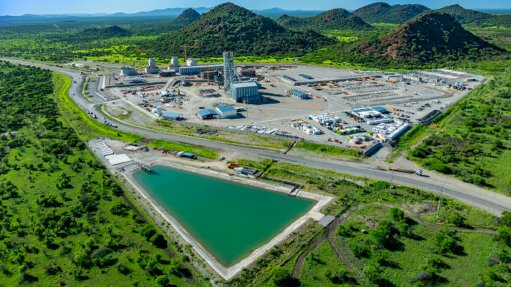Dateline Harare
My wife persuaded me to attend a wedding in Harare on the Saturday after Valentine’s Day. We got one of the earliest flights out of OR Tambo International Airport – just to make sure we would witness the proceedings from the word go.
No sooner had we taken our seats than I realised that the gentleman sitting behind me was the communicative type. Barely ten minutes into the flight, I already knew a lot about him: he was born to British immigrants in the town of Kadoma, in Mashonaland West province, and was raised and educated in Zimbabwe. He is now based in South Africa but travels back home quite often. He does miss the country of his birth and upbringing. This includes traditional dishes such as sadza (pap) and vegetables like derere. As a young man, he quite liked sorghum beer – what we call umqombothi on these shores.
I could barely manage to suppress laughter when, resorting to Shona, The Chatty One told the giggling young lady seated next to him something to this effect: “The problem, Sis, is that, if you stay home for too long, you will become a scarecrow, emaciated. Hakuna chiriko (there is nothing). There is no food. There is no electricity. There is no fuel.”
The one-and-a-quarter-hour flight to Robert Mugabe International Airport seemed like a 20-minute dash, thanks to The Chatty One’s unending tales.
After speaking to a couple of taxi drivers outside the international arrivals hall, we settled on the one offering the lowest fare – R350 – to the Golden Conifer Functions Venue in Strathaven, some 20 km away. I tried to strike up a conversation with him, but soon gave up, as most of my questions elicited nothing more than a ‘yes’ or a ‘no’. His longest answer was when I asked him about electricity outages in Zimbabwe, which can last up to 18 hours. “South Africa is now in the same boat; you too are experiencing load-shedding.”
Having been put off by our driver’s reticence, I resorted to observing Zimbabwe through the tinted windows of his Toyota sedan, most likely imported from Japan as a used car. I noticed that the road from the airport to the city centre is in a decent state of repair – not once did I see a pothole. All the robots – bar one – all the way to Strathaven, a leafy suburb in the north of Harare, were working. Although many of the vehicles on the road had seen better days, a significant number were top-of-the-range SUVs and other pricey cars. I even spotted a Jaguar dealership on the periphery of the CBD.
When we reached our destination, I politely requested the driver to fetch us from an address near the wedding venue at about 05:00 the following morning, as we had been booked on the first South African Airways flight to Johannesburg. I was prepared to put up with his being distant, if this meant avoiding exorbitant fares.
The wedding venue was top class, complete with drone-borne video cameras recording the proceedings. The food too was excellent. How I wished I had invited The Chatty One along. He would definitely discard his belief that long stays in Zimbabwe turn people into scarecrows.
When the cabman came to pick us up the next morning, Harare was engulfed in a downpour. He skirted the city centre, following a route that took us within a short distance of the Mbare produce market. We passed scores of young men pushing fruit-laden trolleys in that inclement weather. Our driver finally found his voice: “You see these people? Many of them are university graduates. They have to do this because there are simply no jobs.”
This, I’m afraid, is the Zimbabwe experienced by the majority of the population, the Zimbabwe The Chatty One was referring to as we flew out of Joburg, if in a melodramatic way.
The country’s unemployment rate is difficult to pin down, with figures as high as 90% frequently mentioned, but the Labour and Economic Development Institute of Zimbabwe estimates that people aged 18 to 34 account for 60% of those without jobs.Article Enquiry
Email Article
Save Article
Feedback
To advertise email advertising@creamermedia.co.za or click here
Press Office
Announcements
What's On
Subscribe to improve your user experience...
Option 1 (equivalent of R125 a month):
Receive a weekly copy of Creamer Media's Engineering News & Mining Weekly magazine
(print copy for those in South Africa and e-magazine for those outside of South Africa)
Receive daily email newsletters
Access to full search results
Access archive of magazine back copies
Access to Projects in Progress
Access to ONE Research Report of your choice in PDF format
Option 2 (equivalent of R375 a month):
All benefits from Option 1
PLUS
Access to Creamer Media's Research Channel Africa for ALL Research Reports, in PDF format, on various industrial and mining sectors
including Electricity; Water; Energy Transition; Hydrogen; Roads, Rail and Ports; Coal; Gold; Platinum; Battery Metals; etc.
Already a subscriber?
Forgotten your password?
Receive weekly copy of Creamer Media's Engineering News & Mining Weekly magazine (print copy for those in South Africa and e-magazine for those outside of South Africa)
➕
Recieve daily email newsletters
➕
Access to full search results
➕
Access archive of magazine back copies
➕
Access to Projects in Progress
➕
Access to ONE Research Report of your choice in PDF format
RESEARCH CHANNEL AFRICA
R4500 (equivalent of R375 a month)
SUBSCRIBEAll benefits from Option 1
➕
Access to Creamer Media's Research Channel Africa for ALL Research Reports on various industrial and mining sectors, in PDF format, including on:
Electricity
➕
Water
➕
Energy Transition
➕
Hydrogen
➕
Roads, Rail and Ports
➕
Coal
➕
Gold
➕
Platinum
➕
Battery Metals
➕
etc.
Receive all benefits from Option 1 or Option 2 delivered to numerous people at your company
➕
Multiple User names and Passwords for simultaneous log-ins
➕
Intranet integration access to all in your organisation

















